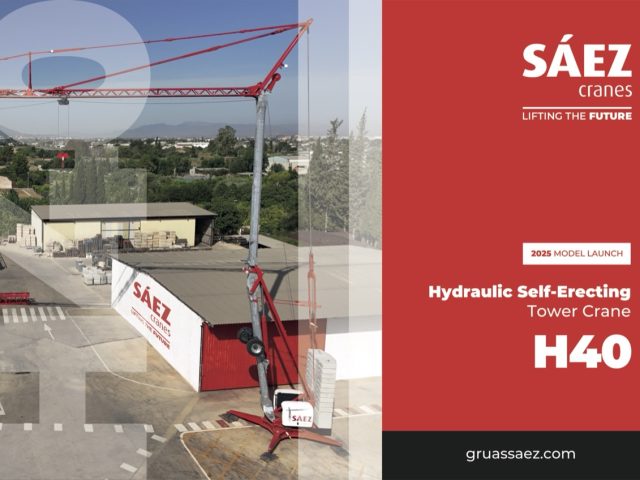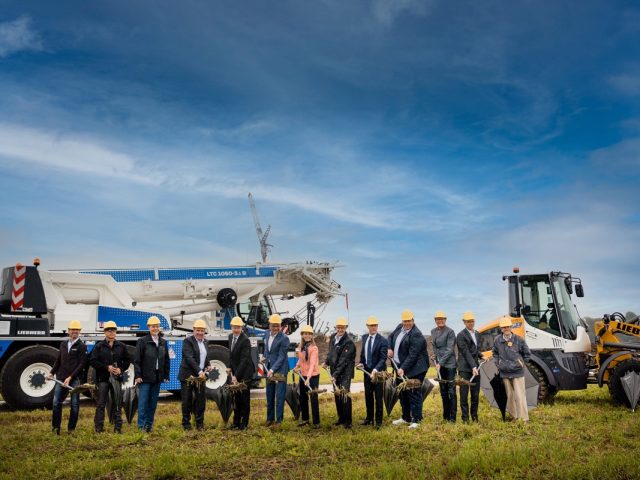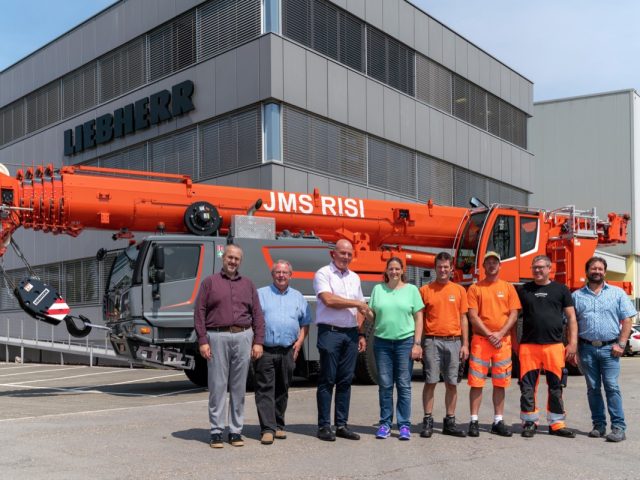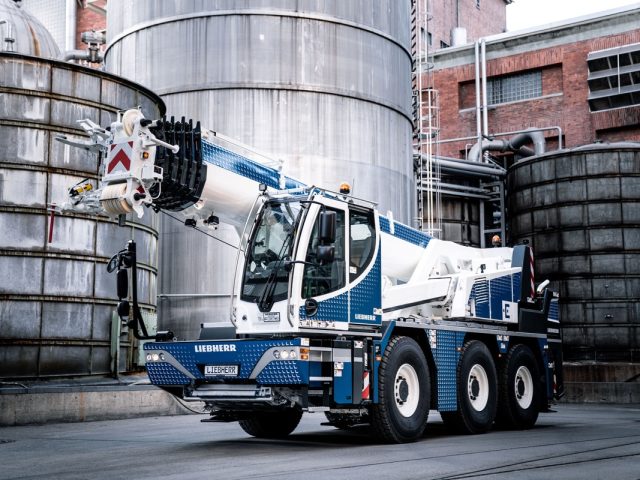- The prototype on show at Bauma
- Liebherr targets the USA as this crane’s primary market
- Most powerful 2-axle rough-terrain crane with the longest telescopic boom on the market
- Economical worldwide transport
- High safety standards
At Bauma 2022, Liebherr will showcase the most powerful rough-terrain crane on two axles on the market. The LRT 1130-2.1 has a maximum lifting capacity of 130 tonnes and extends Liebherr’s range of rough-terrain cranes at the top end of this segment. Apart from its high performance, the designers particularly focussed on economical transport and safe crane operation when they developed this new model.
Liebherr will unveil a 130-tonne rough-terrain crane at Bauma 2022 under the slogan “The toughest in the roughest”. The new LRT 1130-2.1 offers very high lifting capacities and the longest telescopic boom of any 2-axle rough-terrain crane anywhere in the world. It also has the most economical transport dimensions in its performance class.
High performance with long telescopic boom
The concept of the LRT 1130-2.1 is the maximum performance with economical mobility, worldwide. The new Liebherr rough-terrain crane is currently the only 130-tonne crane on a 2-axle chassis. At the same time, its telescopic boom is the longest in its class at 60 metres. It consists of the pivot section and six telescopic sections and is extended and bolted fully automatically with the Liebherr TELEMATIK high-speed telescopic system.
A 10.8-metre single folding jib or a 10.8 –19 metre double folding jib is available for the LRT 1130-2.1. It is mounted at angles of 0°, 20° or 40°, or can optionally be hydraulically tilted from 0° to 40°. With an additional seven-metre lattice section as a telescopic extension, the new crane reaches hook heights of up to 85 metres. The folding jib is carried on the right-hand side of the boom. At the same time, a 2.9-metre assembly jib can be attached to the left-hand side of the boom. A side-folding rooster sheave, which can be operated in 2-line mode, rounds off the boom options.
Economical transport
Liebherr has designed the dimensions of the new LRT 1130-2.1 so that it can be transported economically on low-loaders worldwide. Its width is 3.4 metres, its height is 3.85 metres and its chassis length is 9.4 metres. The transport weight is 48 tonnes without ballast, but with the folding jib and hook block. This can be reduced to 44.8 tonnes. These values are unique in the class of powerful 2-axle all-terrain cranes. A permit-free standard transport vehicle is sufficient for the 20-tonne ballast and additional equipment. The counterweight consists of three ballast slabs and is attached to the slewing platform via self-assembly with ballasting rams.
“Safety first” – safety equipment sets new standards
High safety levels in every respect were the main priority for the design of the new LRT 1130-2.1, which features an outrigger monitoring system as standard. The outrigger status, on tyres or supports, is detected automatically and saved to the crane controller. The attachment of the ballast to the slewing platform and the installation of the optional double folding jib, including its angle adjustment system, are also recorded and monitored.
The VarioBase® variable support base, which was developed by Liebherr and is standard equipment on all Liebherr LRT cranes, makes an important contribution to increasing safety. VarioBase® allows each individual crane outrigger to be extended to any length. The crane work is controlled by the load moment limiter within the LICCON controller, which calculates the maximum load capacities precisely for the current situation. This prevents accidents caused by human error during the assembly process and when hoisting loads. VarioBase® also offers greater flexibility on the construction site, higher lifting capacities and a larger working range. The greatest advantages are achieved in the areas directly above the outriggers.
Safety is also enhanced by providing greater comfort for the operating personnel. The new 130-tonne crane also features the wide crane cab that has already proven its worth on the other Liebherr LRT models. It can be tilted backwards to provide greater comfort when hoisting loads to great heights. Clear, self-explanatory controls make the crane easy to handle. They allow crane drivers to concentrate on the main focus of their job, working with the crane and the load. Liebherr calls this concept KISS: “keep it simple and safe”.
There are ladders, a large number of handles and an electrically extending platform on the cabin to ensure safe access to the crane. The new LRT crane features a wide range of storage boxes for extensive accessories, lifting tackle and support timbers as standard. There is also storage for the load hook.
Like the LRT 1090-2.1 and LRT 1100-2.1 cranes, the LRT 1130-2.1 also complies with a global, uniform safety standard and thus with globally valid regulations such as the US ASME B30.5 standard, the European EN 13000 standard, the Australian Standards (AS) and the Russian GOST standard. The machines also include systems to prevent safety equipment from being bypassed. Liebherr is a pioneer in the industry in this respect.
High off-road capability
The new LRT 1130-2.1 is designed for robustness, off-road mobility and manoeuvrability. It is powered by a 6-cylinder CUMMINS combustion engine that complies with all applicable exhaust emission regulations. It can be operated without restrictions with hydrogenated vegetable oil (HVO). The engine develops 188 kW (252 bhp) and supplies a maximum torque of 1,186 Nm. A 6-speed powershift transmission from DANA and large 29.5 R 25 tyres guarantee the required off-road capability. All-wheel and crab steering ensure easy handling and high manoeuvrability in constricted conditions.
This press release was sent by Liebherr on 24 Oct 2022.


















